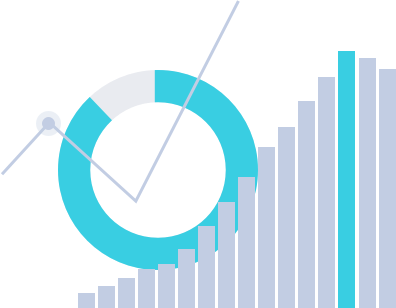
A finance coach is able to give you a fresh look at your financial situation. A finance coach is a person who can offer a new perspective on your financial situation.
Behavioral finance
Behavioral finance, a rapidly growing field in investment, is becoming more and more popular. It is based on principles of behavior and the relationship between goals and behavior. A behavioral coach is a professional financial advisor who specializes on this area. These coaches can help you communicate with clients and prospects in more engaging ways. The key to behavioral finance is understanding how to present your messages correctly. If you understand how clients process information, it will be easier to craft messaging that is more emotional.
Behavioral finance aims to improve financial decision making. It aims to understand the reasons why people make certain decisions and what influences those decisions. It also addresses our unconscious biases as well as the financial markets' impact. These concepts can help individuals make better financial decisions, which in turn will affect the economic market.

Financial coaching for individuals
Personal financial coaching can help individuals reach their financial goals and improve their financial health. The coach will evaluate your spending habits and suggest new ways to track income and expense. They can also serve as accountability partners, helping clients recover from debt and become more financially secure. Coaches may suggest financial education or plans to save for big financial goals.
A finance coach will help you to create a new budget, reduce debt and build an emergency fund. You can even invest for retirement. They meet with their clients on a weekly basis or every other Wednesday for six months to an year. They can teach you how to manage your money, and help you save for the long-term.
Financial advisor versus personal financial coach
Financial advisors help clients achieve their financial goals by focusing on long-term planning. Clients often have personal financial coaches who meet with them before meeting with advisors and help them make financial decisions. They can assist clients with their tax planning, estate planning, or healthcare. Some financial coaches provide ongoing portfolio analysis and advice.
Financial coaches must have a solid sales background to be able to attract new clients. They market themselves using traditional advertising and social networking. They need to be able to host seminars or get quoted in financial magazines. Financial coaches must also be good people-people skills.

The cost of hiring a financial advisor
Although it's a great way of improving your financial situation, hiring a financial coach won't be cheap. Coaching can cost anywhere from $200 to $2,000 per session for three to five sessions. But, hiring a financial coach will save you time and money.
Many small business owners have difficulty managing cash flow and paying expenses. While this can lead to a high level of bank balance, it may also signal that your business has stopped growing. A financial coach is able to help you cut costs, make savings, and keep your company afloat. One couple, for example, worked with Schumm to get out of $45,000 of debt and increase revenue from $250,000 to $350,000 in a year.
FAQ
Do I need a degree to be a consultant?
You can become an expert in any subject by learning the subject thoroughly, then applying what you have learned.
Start studying today if you want the skills to be a great manager!
Employers may be reluctant to hire people with a degree, but not the relevant experience. You could still apply if you are able to show that you have the same subject knowledge as the people who were hired.
Employers will always seek out candidates who have real-world experience.
What kind of jobs are there for consultants?
You will need to be able to understand business strategy and operations if you want to work as a consultant. Understanding how businesses work and their place in society is also essential.
You must have excellent communication skills as well as the ability to think critically in order to be a consultant.
Consultants should be flexible because they may be asked for different tasks at various times. They must be able and willing to adapt quickly to changes in direction.
They should be able to travel extensively for clients. This kind of work can take them around the world.
They need to be able and able to manage pressure and stress. Sometimes, consultants may be required to meet strict deadlines.
Consultants might be required to work long hours. This can mean you might not always receive overtime compensation.
What are the benefits of consulting?
Consultants have the ability to choose when and on what they work.
This means that you are able to work from wherever you're at any time.
It means that you can change your mind easily without worrying about losing your money.
Finally, you have the ability to control your income levels and establish your own schedule.
How does consulting differ to freelancing
Freelancers can be self-employed people who provide their services to clients, without the involvement of employees. Hourly rates are usually charged based on the time they spend working on a client’s project. Consultants typically work for agencies and companies that employ them. Their salaries are usually paid monthly or annually.
Freelancers tend to have more flexibility than consultants because they control their work hours and set their own prices. But consultants have more benefits like vacation days, health insurance and retirement plans.
What kind of contracts can consultants sign?
Standard employment agreements are signed by most consultants when they are hired. These agreements include details such as how long the consultant will stay with the client, what he/she can be paid, and other important information.
Contracts can also indicate the areas of expertise that the consultant will concentrate on and the compensation they will receive. The agreement might state that the consultant will conduct training sessions, workshops or webinars.
Sometimes the consultant will simply agree to complete a task within a certain timeframe.
Many consultants sign independent contractor agreements in addition to the standard employment agreements. These agreements allow the consultant work on his/her own but still receive compensation for his/her efforts.
Statistics
- According to statistics from the ONS, the UK has around 300,000 consultants, of which around 63,000 professionals work as management consultants. (consultancy.uk)
- Over 50% of consultants get their first consulting client through a referral from their network. (consultingsuccess.com)
- 67% of consultants start their consulting businesses after quitting their jobs, while 33% start while they're still at their jobs. (consultingsuccess.com)
- Over 62% of consultants were dissatisfied with their former jobs before starting their consulting business. (consultingsuccess.com)
- "From there, I told them my rates were going up 25%, this is the new hourly rate, and every single one of them said 'done, fine.' (nerdwallet.com)
External Links
How To
What Does A Typical Day For A Consultant Look Like?
Your work type will determine the length of your day. You'll spend your time researching new ideas and meeting clients.
You will have many meetings where clients and you can discuss their issues. These meetings can be conducted over the phone, by email, face-to-face, or online.
Also, proposals are documents that outline your ideas or plans for clients. You'll need to discuss your proposals with a mentor, colleague, or friend before you present them.
After all the preparation, you'll need to start creating content. You might be creating articles, videos, editing photos, writing interviews, or designing websites.
Depending on your project's scope, it may be necessary to do research to get relevant statistics. You might need to determine how many customers you have, and whether they buy more than one product.
Once you have enough information, it is time to present your findings and conclusions to clients. Your findings can be presented orally or written.
Finally, you must follow up with clients after the initial consultation. You might contact them regularly to check on their progress or send them emails to confirm they have received your proposal.
This is a long process that can take some time. However, it is crucial to stay focused and to maintain good relationships.